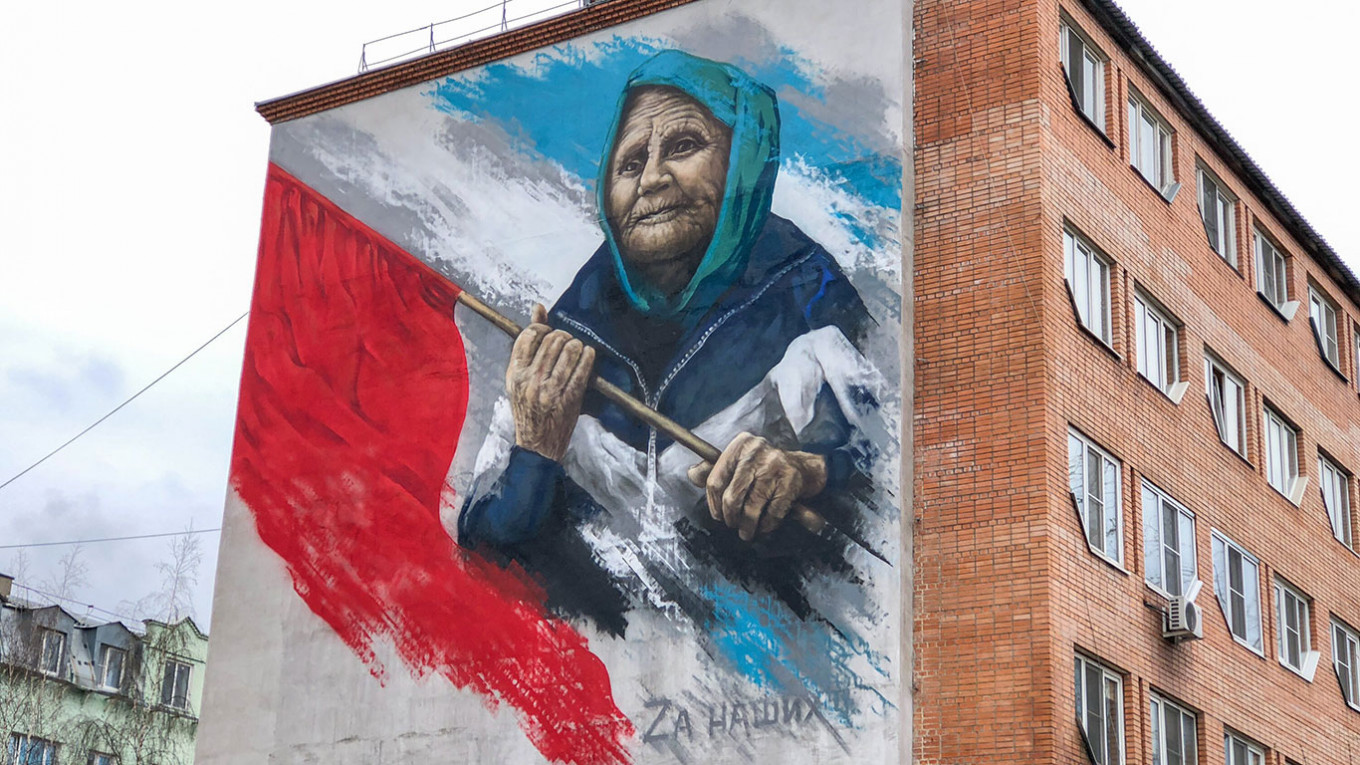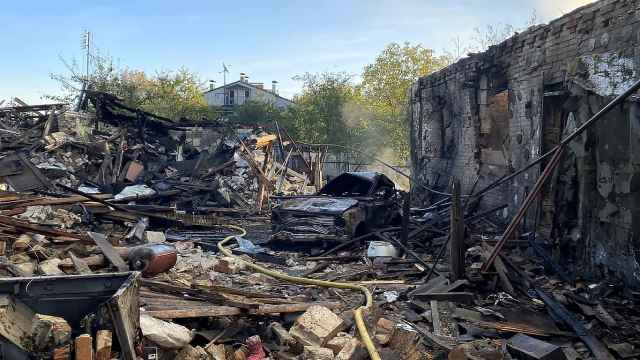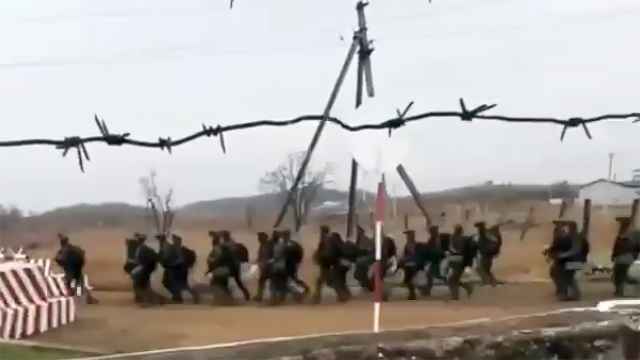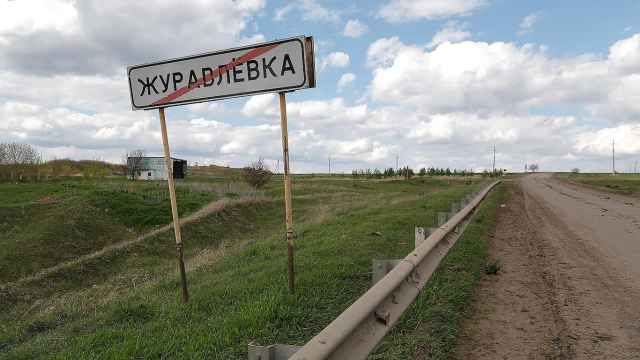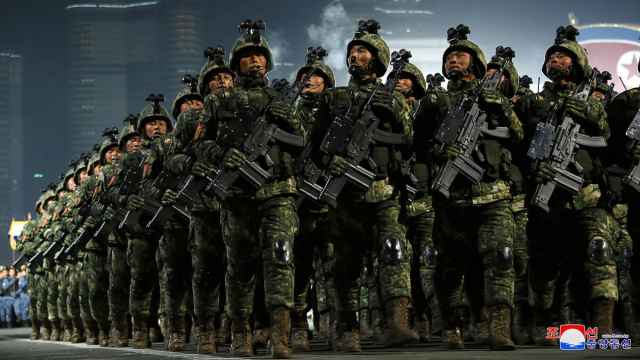An elderly Ukrainian woman has become a symbol of support for Russia's invasion of Ukraine after the pensioner mistakenly greeted Ukrainian soldiers with a Soviet banner.
Her viral popularity comes in the run-up to Russia’s May 9 holiday Victory Day, when nostalgia for the Soviet Union and its defeat of Nazi Germany in World War II is running high.
Here’s what you need to know about the babushka whose image has gone viral on the Russian internet.
What happened?
In early April, a video showing an old woman greeting Ukrainian soldiers with a red Soviet banner went viral.
Although the soldiers wore Ukrainian flags on their uniform sleeves, the pensioner mistook them for Russian troops, telling the soldiers that she and her husband had “waited, prayed for them, for Putin and all the people.”
The soldiers took the banner from the elderly woman as they began to hand her food. But when the pensioner saw that the troops had placed the flag on the ground and stamped it into the mud, she gave the food back.
She told the soldiers that her parents had fought for the Soviet flag in World War II, and that Ukrainian President Volodymyr Zelensky had provoked Russia’s invasion because he “didn’t find a common ground with [Russian President Vladimir] Putin.”
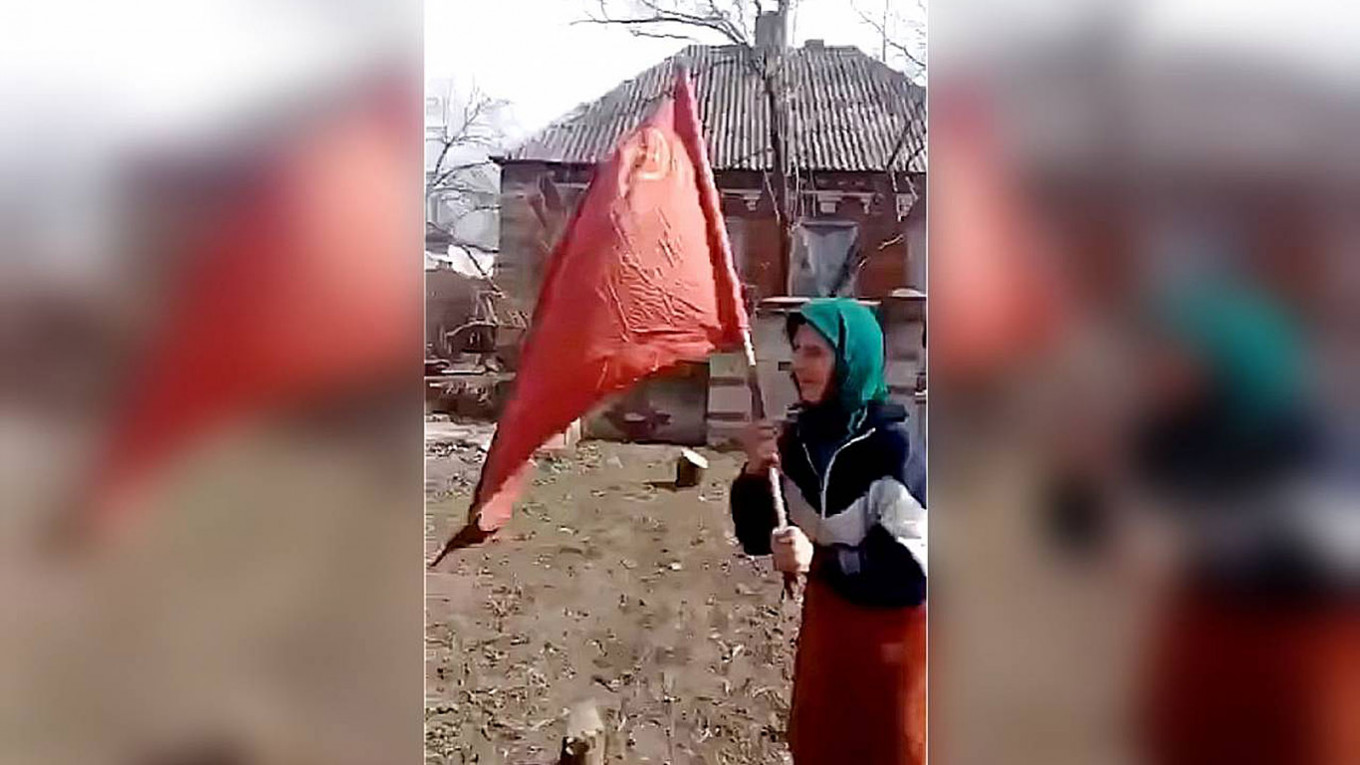
How did it become so big?
Nostalgia for Soviet victory in World War II, combined with Kremlin claims that Ukraine’s Russian-speaking population has been persecuted by the government, means that pro-war Russians quickly took the Ukrainian grandmother to their hearts.
Her story was quickly picked up by Russian state-run media, who praised the grandmother’s bravery and resilience. Her reaction was used as proof that Russia’s invasion of Ukraine had grassroots support among local people, who saw Russian troops as “liberators.”
Russian state broadcaster Channel One featured the babushka on both April 7 and April 9. Four days later, Russia’s ambassador to the UN Dmitry Polyanskiy said that the elderly woman symbolized “another Ukraine,” one which could have “good neighborly relations” with Russia.
The flag carried by the pensioner — a red flag with a hammer, sickle and star, in the style of flags hoisted over the Reichstag during the Soviet victory over Nazi Germany in World War II — is also attached to strong emotions in Russia.
Soviet flags have been seen alongside the Russian tricolor in so-called “liberated” Ukrainian cities captured by Russian forces.
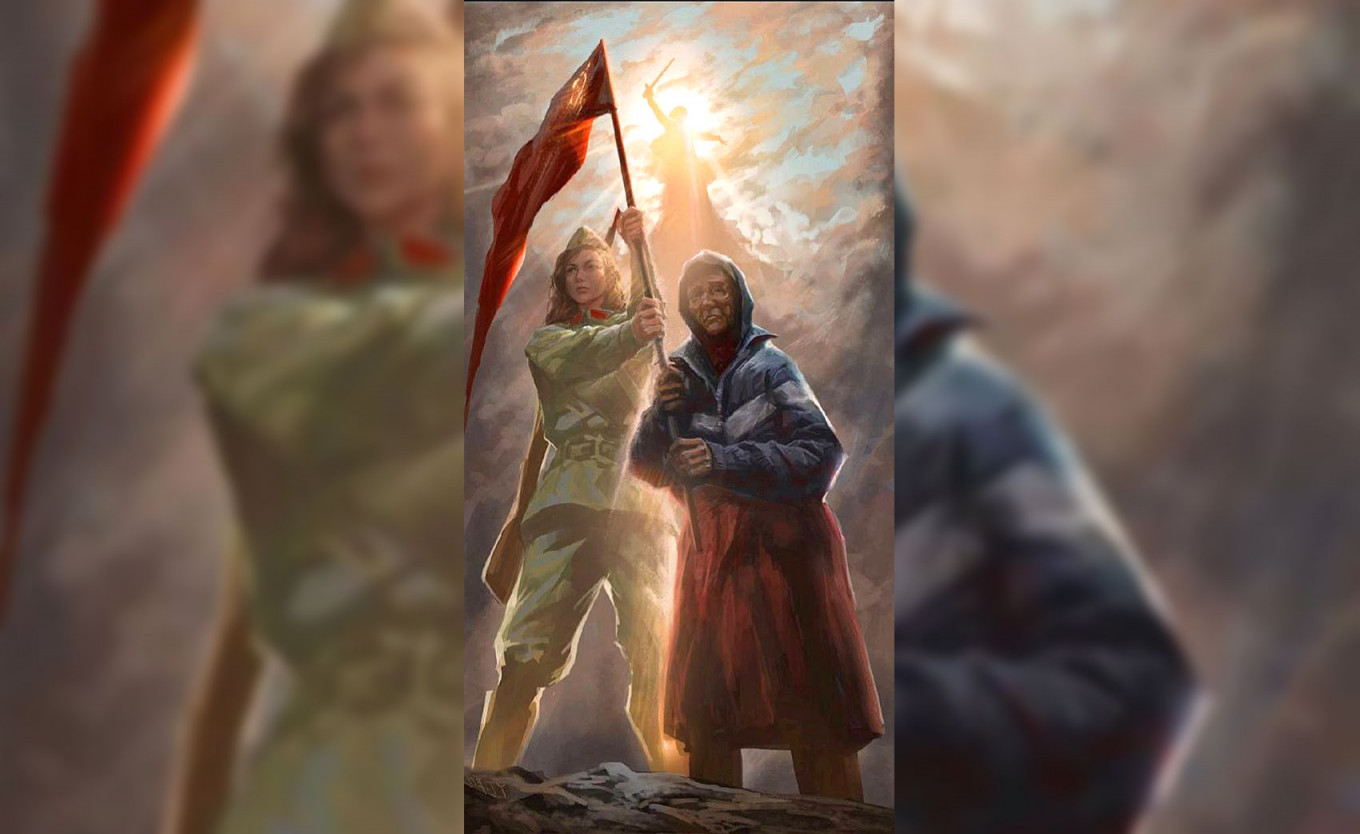
What’s happening now?
Along with the letters Z and V, the so-called "Babushka Z" has become a rallying symbol for pro-war Russians.
The image of the elderly woman, flag in hand, has been replicated in murals as far-flung as Russia’s Sakhalin Island in the Far East. She has inspired postcards, street banners, billboards and military chevrons. Russian online marketplace OZON even sells stickers featuring her image for 280 rubles ($3.81).
One of the first public engagements for officials in the Russian-occupied Mariupol was to unveil a statue immortalizing the woman in the heart of the battered Ukrainian city.
In the Russian city of Voronezh, some 325 kilometers from the Russian-Ukrainian border, an artist crafted a carved wooden sculpture of the babushka. The red victory flag in the statue’s hands was brought from the separatist Donetsk People’s Republic in Ukraine.
A similar sculpture appeared in the Russian city of Belgorod, even closer to the Ukrainian border — but officials were eventually forced to take down the statue amid ongoing vandalism.
Russian police have taken such incidents seriously. A man who broke a cardboard cutout of the babushka in Moscow was detained and charged with “discrediting the Russian army.”
Dmitry Rogozin, the director of Russian space company Roscosmos, even promised on April 23 to paint the elderly woman onto the side of a rocket for an upcoming launch. But although Roscosmos successfully launched a rocket decorated with a painted letter Z several days later, the pensioner herself was not in sight.
But what happened to the babushka?
A new video published to Telegram on Tuesday purportedly shares new details on the woman who became an unexpected symbol.
The pensioner, whose name is said to be Anna, lives with her husband in a Ukrainian-held area near the town of Dvorichna, 5 kilometers from the frontlines in northeastern Ukraine. Anna and her husband refused to evacuate their village as they didn’t want to leave their pets behind.
In the new clip, Anna speaks little to a group of Ukrainian soldiers, saying that she didn’t understand why gunshots were fired close to their village. She eventually goes back inside her house while her husband thanks the Ukrainian troops for their care.
A Message from The Moscow Times:
Dear readers,
We are facing unprecedented challenges. Russia's Prosecutor General's Office has designated The Moscow Times as an "undesirable" organization, criminalizing our work and putting our staff at risk of prosecution. This follows our earlier unjust labeling as a "foreign agent."
These actions are direct attempts to silence independent journalism in Russia. The authorities claim our work "discredits the decisions of the Russian leadership." We see things differently: we strive to provide accurate, unbiased reporting on Russia.
We, the journalists of The Moscow Times, refuse to be silenced. But to continue our work, we need your help.
Your support, no matter how small, makes a world of difference. If you can, please support us monthly starting from just $2. It's quick to set up, and every contribution makes a significant impact.
By supporting The Moscow Times, you're defending open, independent journalism in the face of repression. Thank you for standing with us.
Remind me later.


